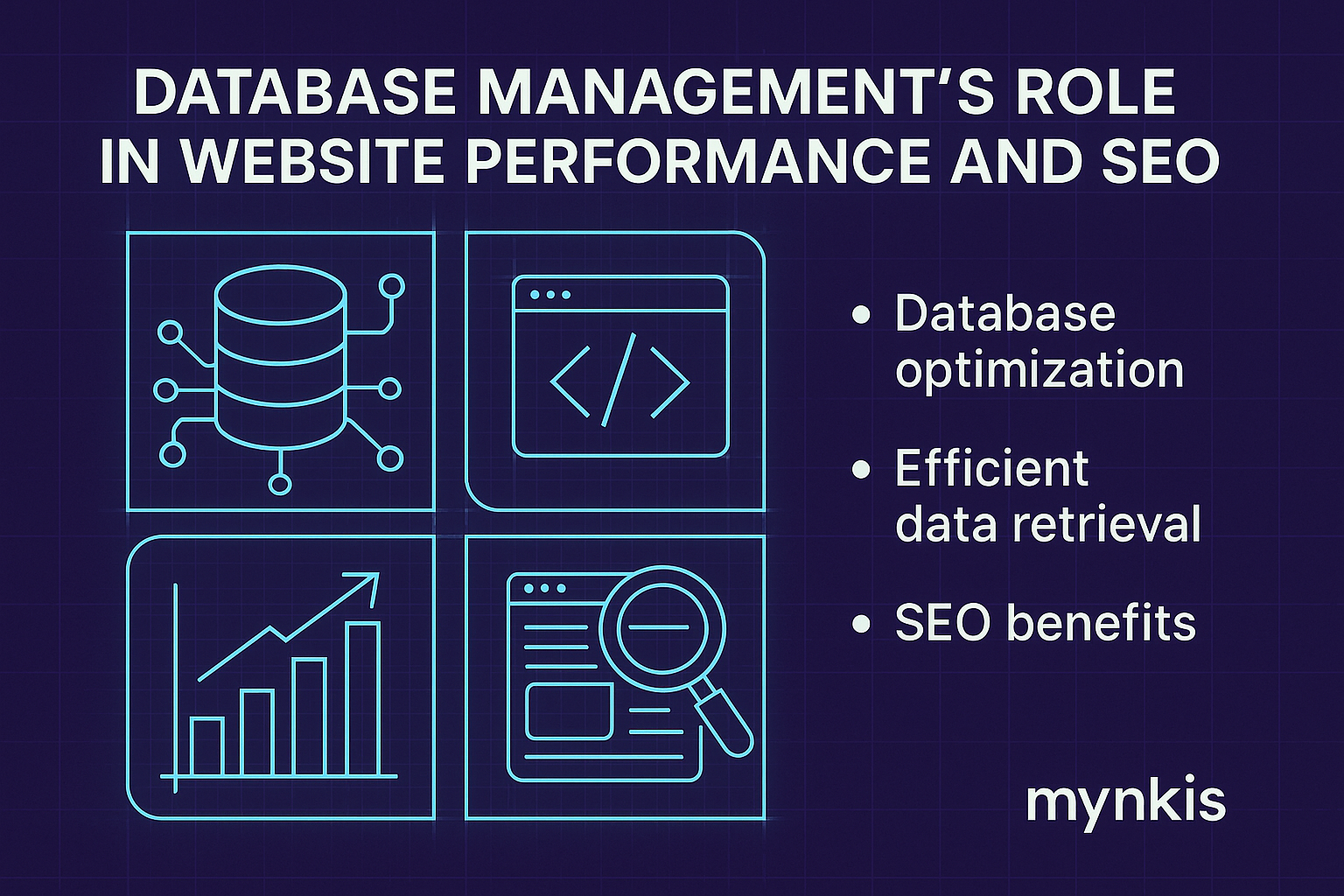Schedule a Demo
Building a website in today's digital ecosystem goes well beyond front-end design. A robust backend, powered by efficient database management, forms the backbone of any dynamic, user-responsive site. As an agency, I've witnessed firsthand how pivotal this foundation is for sites that aim to engage users and grow organically through search engine optimization (SEO).
At its core, your website's database is like a well-organized library. Just as you need to catalog books efficiently to find them quickly, a well-managed database ensures your content and user data are readily accessible. For website owners seeking to engage their audience and grow their online presence, proper database management significantly affects site speed, user experience, and ultimately, SEO.
Efficiency in database queries leads to faster page loads. According to Google, site speed is a ranking factor. So, whether you’re launching a new site or overhauling an existing one, give ample consideration to how data storage, retrieval, and management can propel your SEO efforts and enhance user satisfaction.
The choice of database system should align with your site's needs. I often recommend SQL databases like MySQL or PostgreSQL for their robust performance, scalability, and extensive documentation—key if you or your team aren't specialists in custom software development. In contrast, for certain applications requiring flexibility in data structure, NoSQL databases like MongoDB or Cassandra may serve better due to their ability to handle unstructured data seamlessly.
Decision-making around databases is just the start. Deploying, scaling, and maintaining these systems further challenge business owners, yet are crucial for leveraging tools like advanced data analytics to refine SEO strategies or tailor marketing efforts to engage your customers more effectively.
Database optimization can lead directly to improved website performance, a critical factor for SEO. I've seen projects where simply refining database queries cuts server response times in half. To translate these enhancements into SEO benefits, ensure your database facilitates quick data retrieval—vital for rendering content-rich pages swiftly and ranking higher on search engine results pages (SERPs).
Remember, the content relevant to your target keywords should be loaded quickly. Indexing—a known love language of search engines—is boosted by the efficiency with which your site pulls data from the database. Applications that boast fast load times, fueled by well-managed databases, keep users on your site longer and provide SEO-boosting signals.
Security in database management isn't flashy, but it's foundational. Business owners and c-level executives might not think about it daily, but data breaches not only jeopardize client trust but can disrupt your SEO progress. While striving for SEO gains, never neglect regular security updates and robust data encryption. A secure database enhances compliance and trust, facilitating safer user engagements crucial for long-term SEO victories.
Global Data Protection Regulation (GDPR) set a new standard for how businesses handle personal data. A properly managed database not only optimizes performance but aligns with these regulations, safeguarding user privacy while benefiting SEO. Adherence to GDPR can't propel your site directly up SERPs, but a positive trust factor influences user behavior—and potentially, organic search engine rankings.
Your database isn't just about website function—it's a wellspring of growth data. Through custom software development, tools can be tailored to sift through user data and interactions, extracting actionable insights that shape your SEO strategy. Whether it's monitoring bounce rates, tailoring content to specific user queries, or optimizing landing pages, effective database management empowers you to drive focused growth.
In developing enterprise web solutions, I often hear from operations teams how granular data, judiciously analyzed, is their ace for winning sharper marketing strategies and smoother operational flows. Effective use of this data can illustrate a distinct competitive edge, illuminating user journeys to optimize pages and improve on-site SEO performance.
Modern websites, fueled by advanced database technologies, are shaping a future where personalization reigns supreme. Every click a user makes refines their journey through smart algorithms powered by the data your database collects and analyzes. For website owners, staying ahead means integrating your database strategy with future-ready technologies in custom software development and SEO, always with an eye toward scalability and evolution in the burgeoning field of digital interactions.
The landscape of database management will continue evolving—sometimes at a pace that outstrips non-tech business sensibilities. Yet, by embracing the strategic deployment of these systems, business owners ensure their websites not only meet today’s standards for performance and SEO but are adaptable enough to meet the next wave of digital demands.
